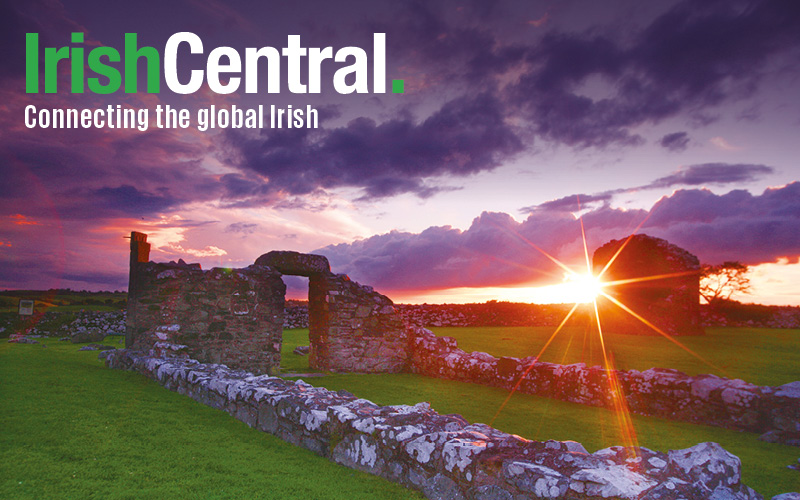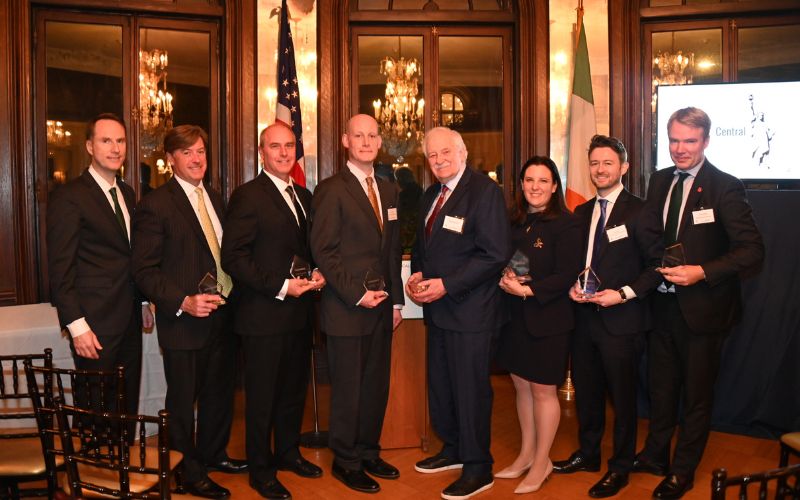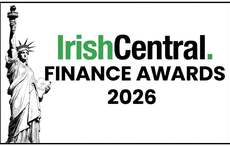Thinking back to my father’s time and what the Big Fella meant to him and while time’s changed somethings stay the same, even amidst Brexit’s befuddlement.
My father was, in his young days, exact in many ways. Our uncle described him as ‘fastidious’. He was exactly 6-foot-tall and born on Jan 1, 1900, and as I child, I thought you couldn’t get much more exact than that. Like many people of his generation, he revered Michael Collins, and intensely disliked De Valera. In other families, even next-door neighbors, feelings could be just as vehement, but the other way around. It seemed to me, in the Ireland of my youth, (the 60’s and 70’s), that everyone’s parents or grandparents had strong feelings on the Collins versus De Valera question.
Then, later on in life, I met a couple of great pals who had been brought up in Catholic families in ‘Norn Iron’. Growing up, and at school, they’d heard very little about Michael Collins, so they escaped the endless Collins / De Valera debates, but had to contend with so much more than sporadic heated arguments…
I left Ireland at 21 and flew a few friendly and not so friendly skies, but wherever I went, especially in the Middle East, when it was established that I was Irish, not British, people started to smile and chat.
One of my jobs was as an air hostess on an exiled Arab diplomat’s Boeing 727. One day, the number two of the Palestine Liberation Organization, (PLO), was on board. When it was established what neck of the woods I hailed from, he said ‘I studied one of your great leaders’. I expected him to say De Valera, as I thought due to the longevity and prominence of Dev’s career, he would be better known on the international circuit. However, not at all, he was referring to Michael Collins; my own father’s hero.
Years later I went to Israel and visited my husband’s family in a Moshav. One of his cousins told me how sad he was that his wife had passed away. Then he went on to reminisce that she could have died a lot younger. They had met fighting during the Arab-Israeli Six Day war, (aka the June war) in 1967 when they both took to the streets of Jerusalem and fought with knives. The Israelis refrained from using armor during the battle out of fear of damaging the Old City. After relating his war memories, he said ‘you know I read a great book about one of your Irish leaders’, I waited for Dev’s name; but again, it was Collins who was evoked. My husband’s cousin had diametrically opposing political opinions to the PLO’s number two, but it seemed they converged on one thing: Michael Collins!
My defunct father in law, Bob Denard, in his line of work as a mercenary and working for the French secret service, with his men, combated communism and also impacted the destiny of certain African countries and the Comoro Islands, where he led three coup d’états. At family dinners, he was often surrounded by his former soldiers, many of whom as ‘the risk of communism’ evaporated, and the decolonization of Africa progressed, had become military advisors or strategists. At one dinner, one of the now military strategists announced, ‘Patricia, I’m fascinated by one of your old Irish patriots’. Yes, dear reader, you’ve already guessed, no suspense, once again no mention of Dev. It was Collins doing a solo, center stage, in that man’s knowledge of Ireland in the early 20th century.
What did they all have with Michael Collins? And when I mentioned on those three occasions, the name ‘De Valera’, the reverse side of the coin, I just got blank stares. Not the Irish mentality of my youth, where if one was considered a hero, the other would often be perceived as a villain, and bringing up the inappropriate name could merit a lengthy discussion. It seemed those three men, only had eyes for Collins and didn’t give a fig, one way or another, about Dev. It was strange and unfamiliar ground. Was my father, warning me from the grave, through those encounters, to make sure I didn’t stray from a strictly ‘Collin’s only' path?’
My father’s conversations of my youth seemed to focus more on 1916 and not on the War of Independence, the ‘1920 Partition Act’ or subsequent Civil War. He would often outline what he perceived Dev Valera’s 1916 shortcomings to be. He would become agitated and say he knew what had happened in ‘Boland’s Mill’ and ‘Mount Street’. My father wasn’t present himself at the Easter Rising, but perhaps some of his older friends or relations from Offaly were. I later researched and found out that some historians relate that ‘throughout the [bloody] Battle of Mount Street Bridge, the Volunteer positions were supported by sniper fire from Boland’s Bakery, [De Valera’s stronghold]. Their actions kept the small British garrison in the adjacent Beggars Bush Barracks pinned down for the duration of the Rising’.
However, other historians argue, ‘that while De Valera had over a hundred Volunteers, only two streets away in Boland’s Mill, his command never reinforced the Volunteers at Mount Street. So it seemed that some people thought ‘De Valera was a meticulous planner who showed strong leadership and initiative’ during the Rising. While others claim that along with non-assistance to the volunteers fighting outside in the Battle of Mount Street Bridge, that during the rising he also gave ‘conflicting orders, refused to sleep, and almost got himself shot when he forgot the garrison password.’ So, it seems the De Valera ‘bad fella’ and the Collins ‘big fella’, and the reverse argument, in Ireland, could be eternal.
My father died when I was in my teens, but for years prior to that he very ill, and those conversations about Collins took place when I was about seven and remain preciously engraved in my memory. The conversations would invariably end with his quoting from ‘The Jackets Green’, the Irish Jacobite ballad by Michael Scanlan, the Fenian poet (1833-1917 - The Wolfe Tones also do a great rendition of this song). He’d ask me ‘Treesha, “had they come in England's red to make [you] England’s queen”, would you accept?’ And I’d delightedly answer ‘No, of course, I wouldn’t’, “I'd rove the high green hills instead, For the sake of Irish Green.”
Once my allegiances were settled, the tea and ‘Jacob’s broken biscuits’ would come out. Reminders of 1916 were omnipresent, the original Jacob’s Biscuit factory, in Bishop Street, had been Thomas MacDonagh’s 1916 Rising stronghold. After the tea and broken biscuits, we often listened to the ‘Walton’s’, not the American series, but the ‘Waltons’ Irish radio program of ‘if you feel like singing, do sing an Irish song', fame and enjoyed more musical memories.
Many years later, while researching, I came across the answer to my personal conundrum. The answer to why, on three occasions, with people from diversely different and non-Irish backgrounds, Collins had inspired when De Valera hadn’t. I found out to my surprise that the man my father had idolized, was considered not only an Irish patriot but that ‘the tactics [he had] developed, caused him to be also regarded as one of the fathers of 20th-century urban guerrilla warfare. Revolutionaries such as Soviet leader Lenin, China’s Mao Zedong and Israel’s Yitzak Shamir studied and adopted Collin’s tactics. In fact, Shamir admired Collins so much that he used the code-name Michael during the Israeli war of independence’!
So, I guess I shouldn’t be surprised if one day, I come across Russians and Chinese, also citing ‘the big fella’ as our former Great Leader. Or perhaps when ensconced in some sultry, foreign bar, with great music, someone might mention a different, but more recent 20th-century guerilla fighter; Martin McGuinness. A fighter, who surrendered his weapons, became committed to the peace process which led to the 1998 ‘Good Friday Agreement’. McGuinness subsequently advocated peace, at numerous lectures and conferences around the world, including the Middle East.
I’ll just have to get down the old suitcase, shake out the cobwebs, get up and out, and check the lie of the land. I’m sure the befuddlement of Brexit, and what the Irish backstop means or doesn’t mean, will have usurped any other discussions. But one thing, I sincerely hope, is that I’ll never, somewhere down the road, be discussing how a hard, no deal, or botched Brexit, and reintroduction of some type of border, led to 20th-century Irish urban guerrilla warfare, staging a comeback. In the 21st century, and 21 years after the revered by most, ‘Good Friday Agreement’, it’s unthinkable. Rehashing past wars can be fascinating, but no one wants a new one to discuss. We never want to see the streets of ‘Norn Iron’ once again transformed into a battleground, because the Brits and their discombobulating Brexit, which their own magazine, 'The Economist', recently described as 'the Mother of all Messes'.
H/T: The Irish Story / NewsTalk
This article was submitted to the IrishCentral contributors network by a member of the global Irish community. To become an IrishCentral contributor click here.




Comments